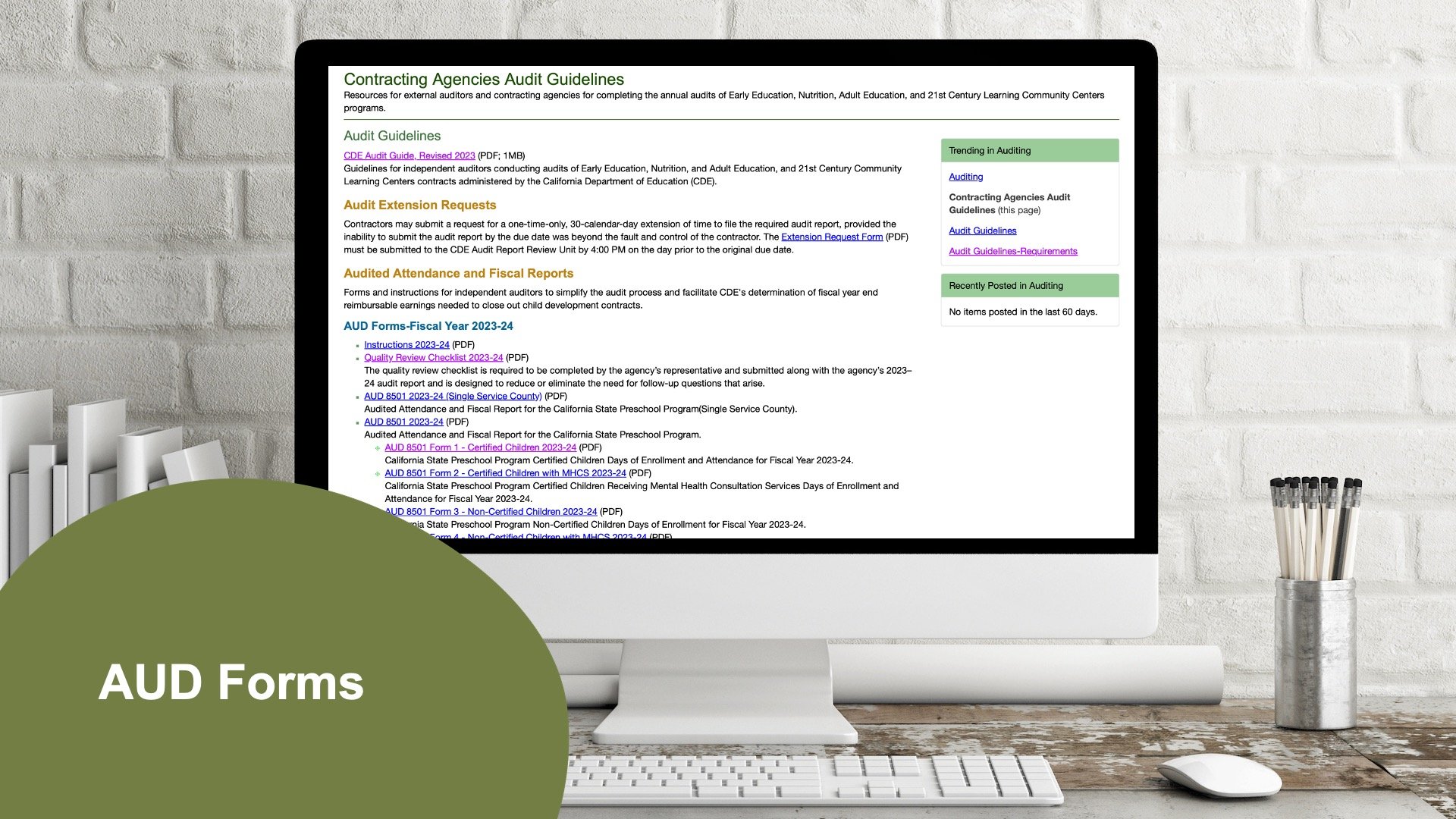Lesson
Dashboard
Lesson 1
Family Selection
Lesson 2
Family Data File
Lesson 3
Attendance
Lesson 4
Parent Involvement & Education
Lesson 5
Health & Social Services
Lesson 6
Site Licensure & License Exempt
Lesson 7
Staff-Child Ratios
Lesson 8
Classroom Assessment System
Lesson 9
Nutritional Needs
Lesson 10
Desired Results Profile & Data
Lesson 11
Qualified Staff & Director
Lesson 12
Staff Development Program
Lesson 13
Refrain from Religious Instruction
Lesson 14
Inventory Records
Lesson 15
Annual Evaluation Plan
Lesson 16
Fiscal
Compliance
Indicator
The program has submitted to CDE’s Office of External Audits an acceptable financial & compliance audit.
Regulations/Reference
EED Program Instrument: V. Fiscal EED 24
Education Code: 8231, 8232, 8335 & 8236
Title 5: 17823
Guide: California Department of Education Audit Guide
Fiscal Handbook: Enrollment, Attendance, & Fiscal Reporting, & Reimbursement Procedures for Early Education Contracts
California School Accounting Manual
Monitoring Review Evidence
Annual Fiscal Audit
Watch Video Lesson ❯
Sample Forms/Tools ❯
Review Sketch Pad Notes ❯
Complete Knowledge Check ❯
After reviewing the video lesson & sketch pad notes, it’s time to check for understanding by completing a Knowledge Check. Note that Individual Knowledge Checks will conclude with a Certificate.













